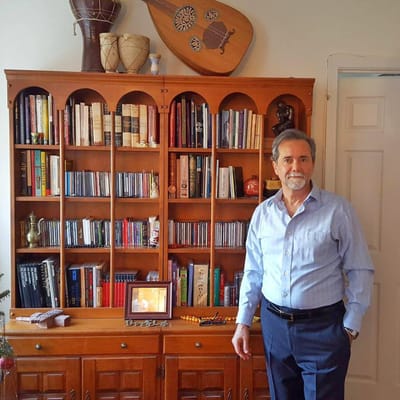Bio

Between academia and the U.S. State Department, Dr. Nabeel Khoury has devoted his working life to examining the U.S. role in the Middle East and to following the cultural and political developments taking place across the Middle East and North of Africa. He is now a non-resident senior fellow at the Atlantic Council’s Hariri Center.
Khoury earned his B.A. in Political Science from the American University of Beirut and his M.A. and P.h.D. in Political Science from the State University of New York at Albany. His life in academia included a three year stint teaching at the University of Jordan in Amman, followed by four years as an Assistant Professor of Political Science at the College of Saint Rose in Albany, NY. While in the U.S. foreign service, he also taught strategy and international relations at the Marine War College and the National Defense University’s War College.
Khoury has published articles on Leadership and Development in the Arab world in The Middle East Journal, the Journal of South Asian and Middle Eastern Studies and The International Journal of Middle East Studies. His most recent scholarly articles on the regional impact of the Arab uprising and on U.S. policy in Yemen, appear in the summer 2013 and summer 2014 issues of Middle East Policy, the Scramble for Iraq, in The Cairo Review in 2014 and The Long View of the Arab Uprising, in al-Bustan (Penn State University Press) in 2016.
His first publication was, Muhammad Abduh, An Ideology of Development, published in the Muslim World, 1976. The most cited scholarly article is titled, “The Arab Lobby: Problems and Prospects," published in the Middle East Journal, 1987.
In 1987, Khoury left academia to join the U.S. State Department. Among his overseas posts: Consul General in Morocco (1998-2002) and Deputy Director of the Media Outreach Center in London (2002-2004). During the Iraq war, Khoury served as a State Department spokesperson at U.S. Central Command in Doha and in Baghdad in 2003. From Baghdad, he went to Yemen as Deputy Chief of mission at the U.S. embassy in Sanaa (2004-2007). As director of the Near East South Asia Office of the State Department’s Bureau of Intelligence and Research from 2008 to 2012, Khoury followed the Arab uprising and participated in high level meetings and briefings on the turmoil that preceded and followed those historic events. Following his retirement from State, Khoury was a Senior Fellow at the Chicago Council for Global Affairs (2013), authoring the Middle East Corner website for the Council and lecturing at Northwestern University - with a focus on U.S. national security and policy in the Middle East.
Khoury takes pride in his love for poetry, classical music and literature. His one regret is that he hasn’t yet taught a course on the Middle East using only the songs of Legendary Lebanese singer Fairouz, who embodies for him everything that is noble about Lebanon and the entire Arab world. From Khoury’s perspective, Arabic literature and poetry humanize abstract political concepts and capture not only public opinion but the very soul of the region. Throughout his foreign postings, Khoury organized intellectual forums to discuss literature and politics with writers, journalists and intellectuals in the region, from Egypt and Morocco to Saudi Arabia .
Today, Khoury divides his time between writing op-eds, addressing U.S. foreign policy on panel discussions and conducting radio and TV interviews. His Book, Bunker Diplomacy, An Arab-American in the U.S. foreign service, describes his experiences as an Arab-American diplomat over the span of twenty five years. On a personal level, it explores the identity question. In terms of policy, it describes how the security profile has deteriorated sharply for American diplomats in the Middle East during his career and reasons behind this deterioration. Khoury hopes the book will shed some light on the reasons for continued tensions between the U.S. and Arab societies.
From Washington D.C., Khoury tweets at @khoury_nabeel and can be contacted via email at nk@nabeelkhoury.com
Front Cover Photo: @WWannualleave